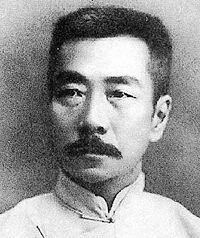Ever since the mid 1920s, the “Chinese Nietzsche” Lu Xun (1881-1936) had been grappling with nihilism as nothingness or emptiness in his literary writings. Lu Xun’s “Regrets for the Past” (shangshi, 1924), a story of the sublimation, derogation and eventually disappearance of a female body, can be read as an allegory of the aesthetic journey taken by a revolutionary individual in modern China. The woman Zijun embodies the unexorcisable specter of despair and nothingness that frequently visits the writer; her metamorphosis demonstrates the limits of symbolic representation and the writer’s traumatic encounter with the nihil in his own subjectivity. Lu Xun’s doubts and disillusionment about revolution is concomitant with his heightened combative revolutionary spirit.
Image

